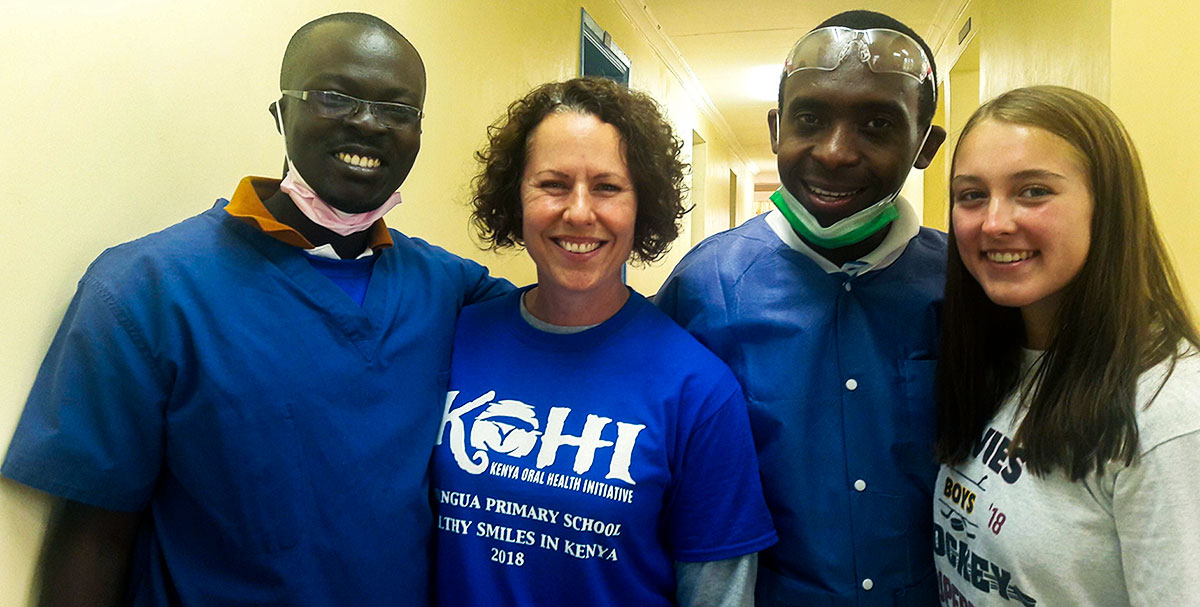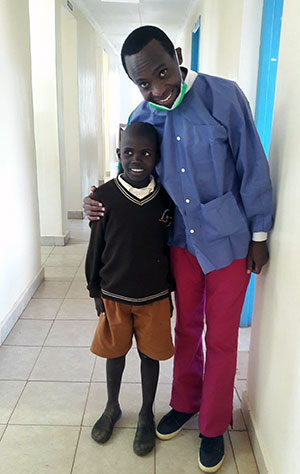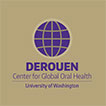My first encounter with a dentist was as a child. I don’t remember much other than the feeling of numbness after the procedure. I had other trips to the dentist as a teenager which ultimately led to pursuing dentistry at the university.

Growing up, I thought everyone visited the dentist when they had teeth problems. However, this notion was shattered during the clinical years in dental school when I came face to face with the reality of dental disease burden. Seemingly young people like myself who had already lost teeth due to dental caries not to mention the pain they persevered with because of lack of access to dental services.

During the clinical years in dental school, we were fortunate as students to participate in many dental outreach programmes in various parts of the country over the weekends. As a student, one is never prepared to see the amount of dental disease in those populations. There was a lot of dental caries, periodontal disease, and edentulism secondary to extractions to treat dental caries. What stuck out was the lack of dental services in those rural areas and if there were present, the facilities are run down and dilapidated.
Subsequently I graduated and was employed by the government in a rural facility. Despite having the knowledge and skills to provide curative services, I realized that patients often presented late when the only treatment options available were either extractions or root canal treatments. In my mind, I thought it better to educate the catchment population around the hospital to prevent dental disease and providing education about early diagnosis and treatment. However, no such programmes existed at the time.
I later enrolled for a postgraduate degree in paediatric dentistry at the University of Nairobi. I was exposed to the high dental disease burden in children who presented late and often required extensive treatment which few could afford. During the course we were introduced to aspects of public health with a focus on dental health and its relationship with general well-being. My interaction with dental public health specialists during this time also kindled my interest in prevention being better and cheaper than curative services. Writing a thesis was part of the course and this introduced me to carrying out research and its importance.
As a practicing paediatric dentist interested in carrying out research, I have been fortunate to have wonderful mentors, Prof Kemoli and Prof Ana Lucia Seminario. They have linked me to research opportunities and guided me. Most notably, they provided guidance and invaluable help when I applied to be a Fogarty fellow. Although I was not successful, I appreciated immensely the opportunity and ‘hand holding’ I received. Most recently, I was part of the initial cohort of trainees for the DeRouen Center at University of Washington for training young researchers in Kenya and Uganda on publishing manuscripts. This was a wonderful programme where I learned a lot and was fortunate to publish my manuscript based on my postgraduate thesis in a leading dental journal.
The more I continue practicing as a paediatric dentist I realize the big gap that exists in patient education and advocacy and the lack of preventive programmes. I hope that by continuing to do research in dental public health I will be able to address some of these gaps and influence change in a positive manner.
